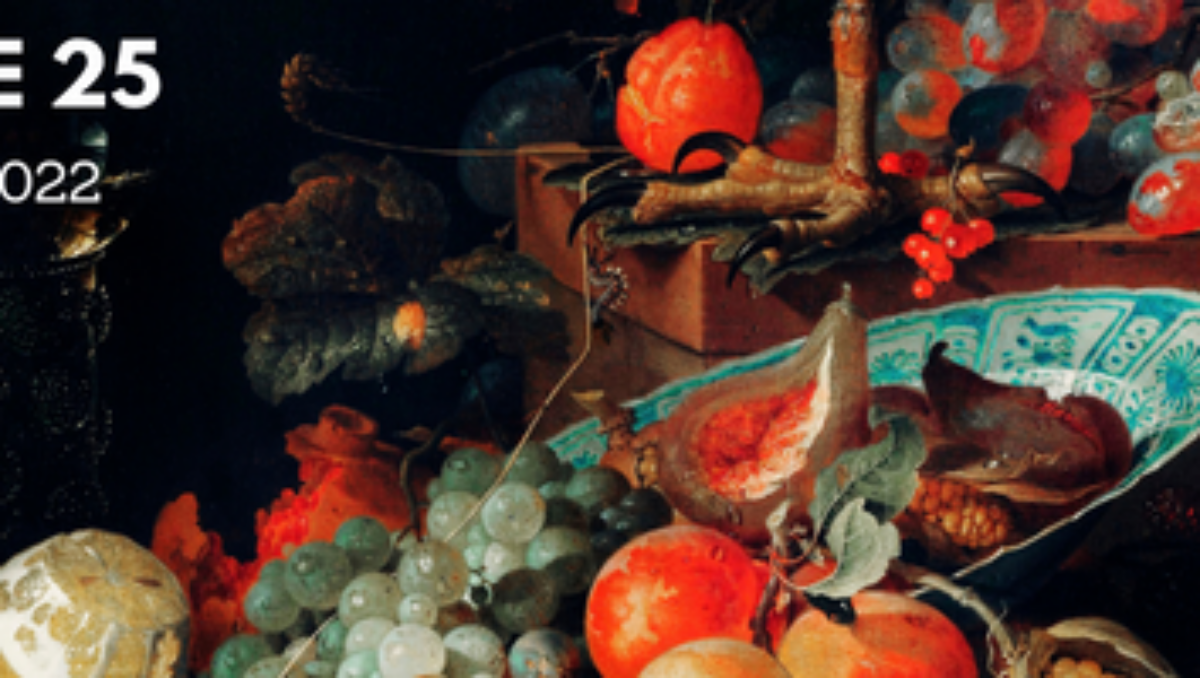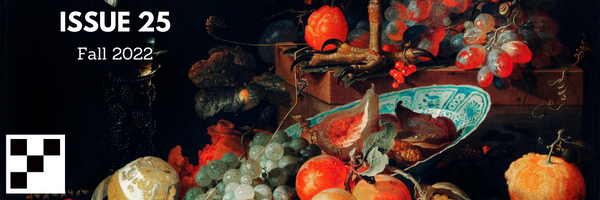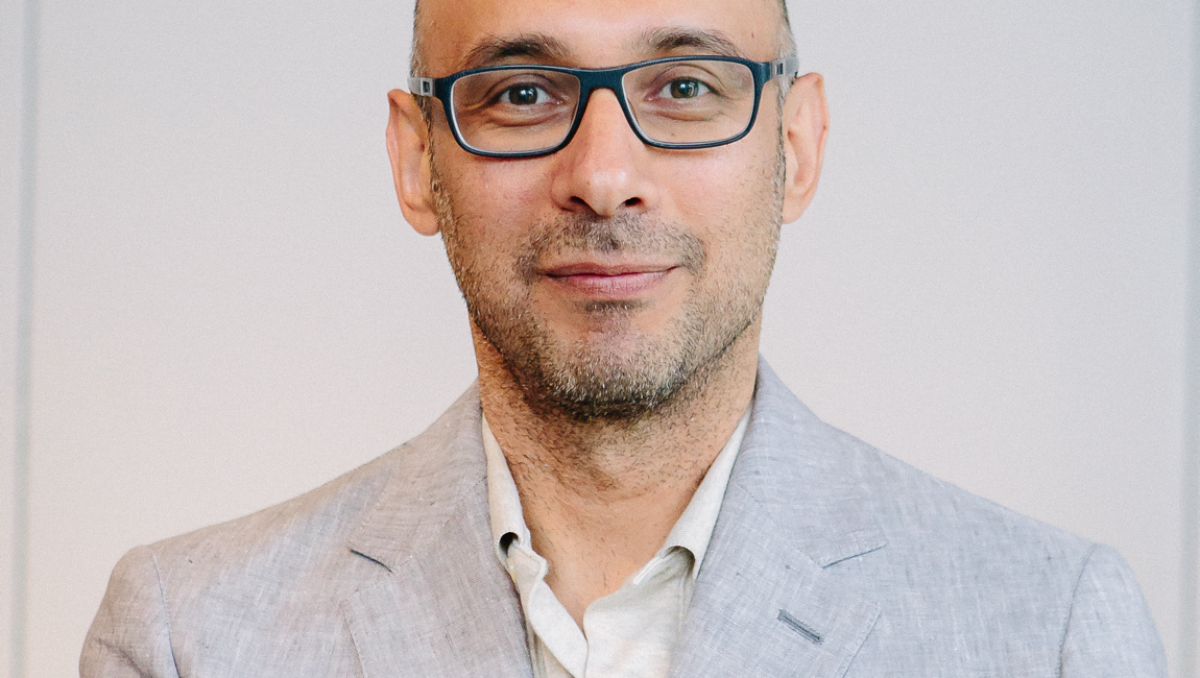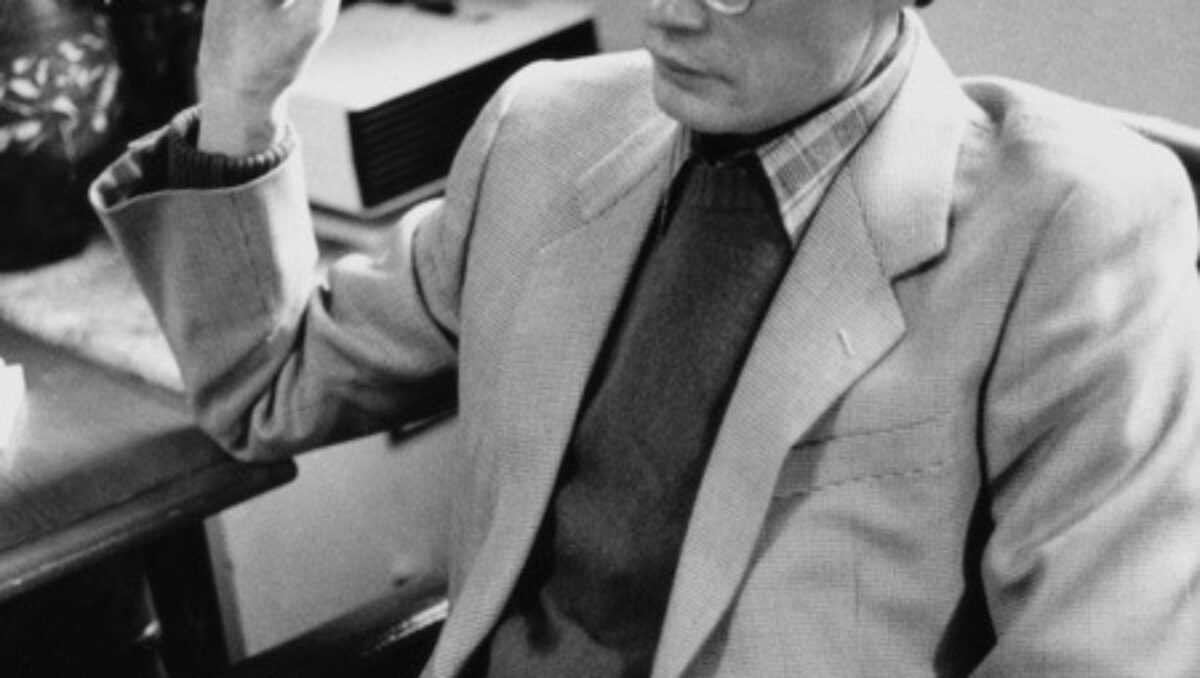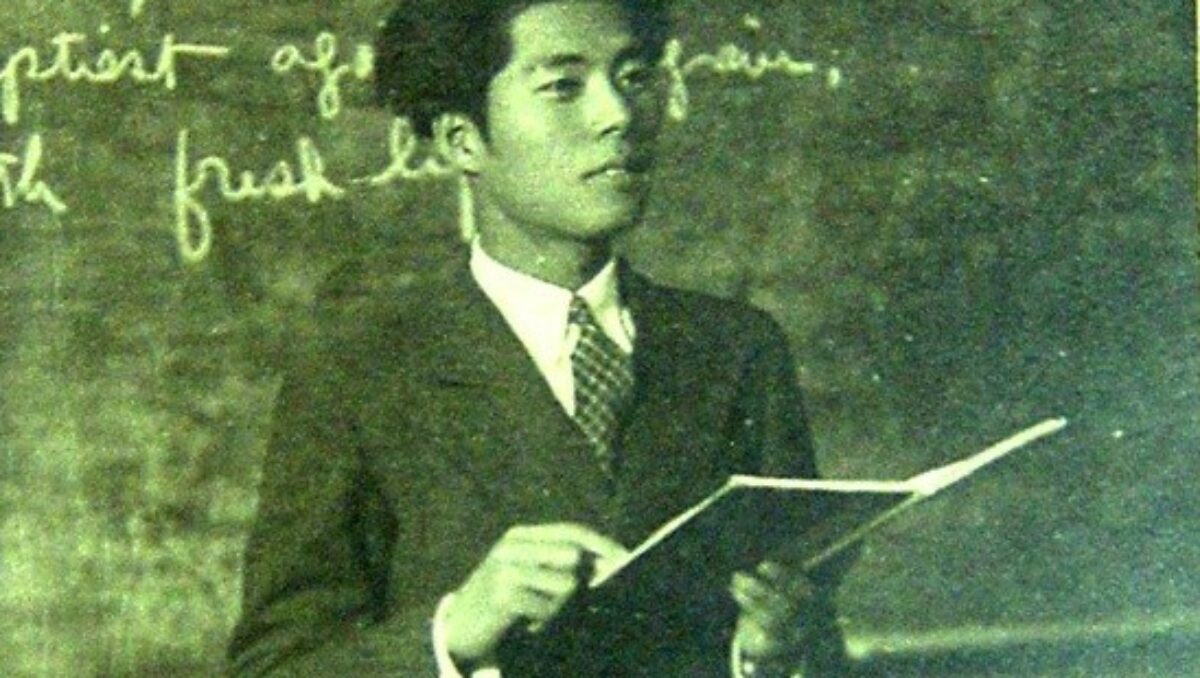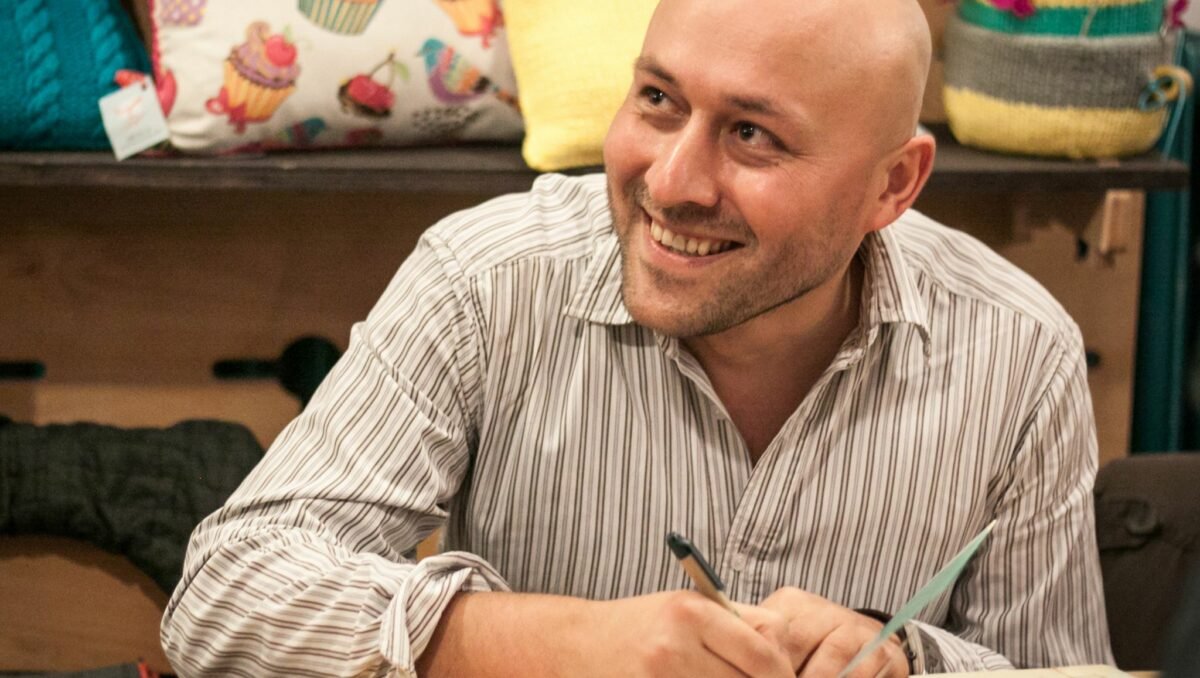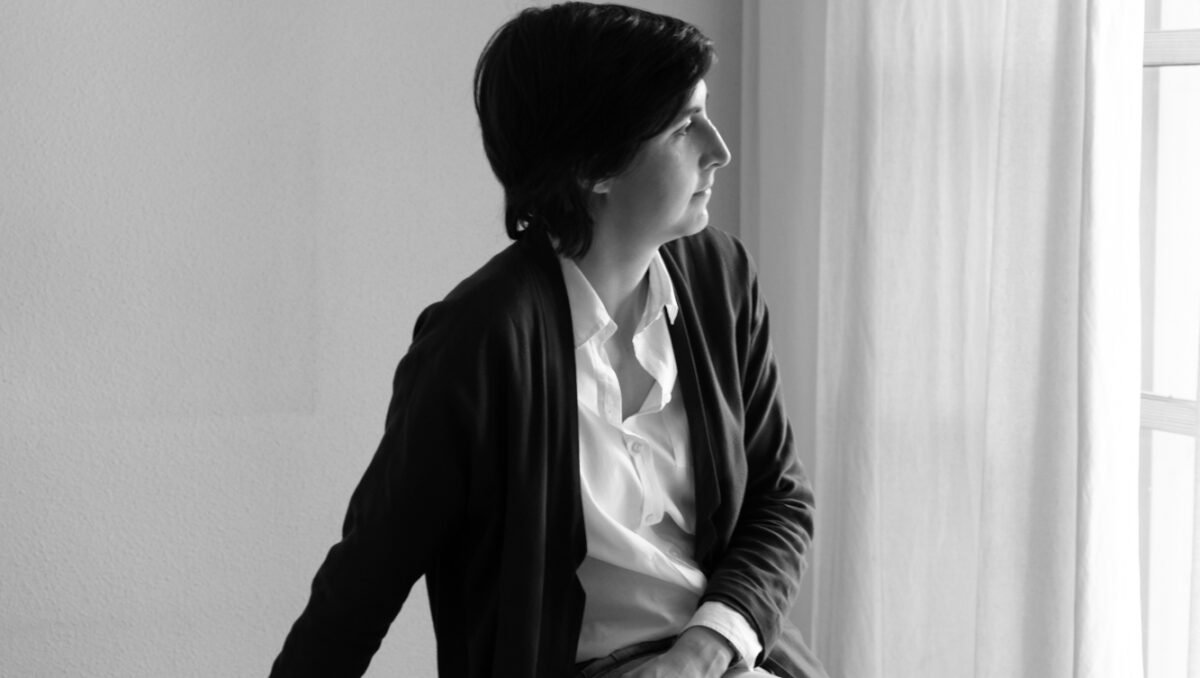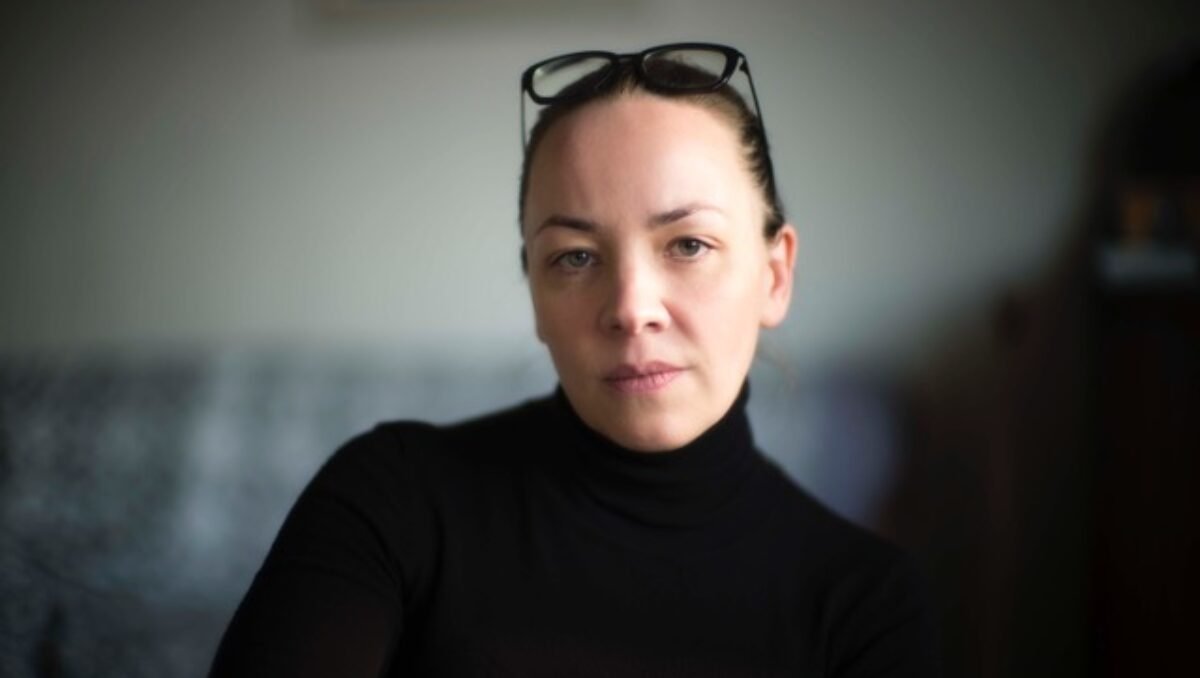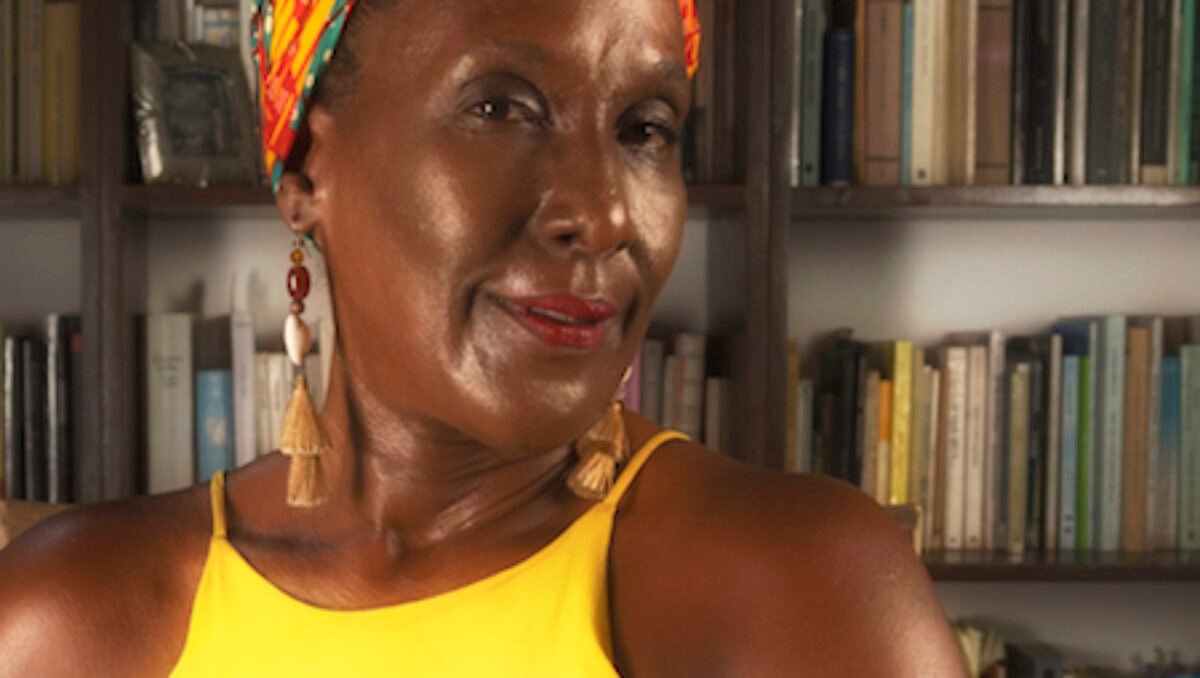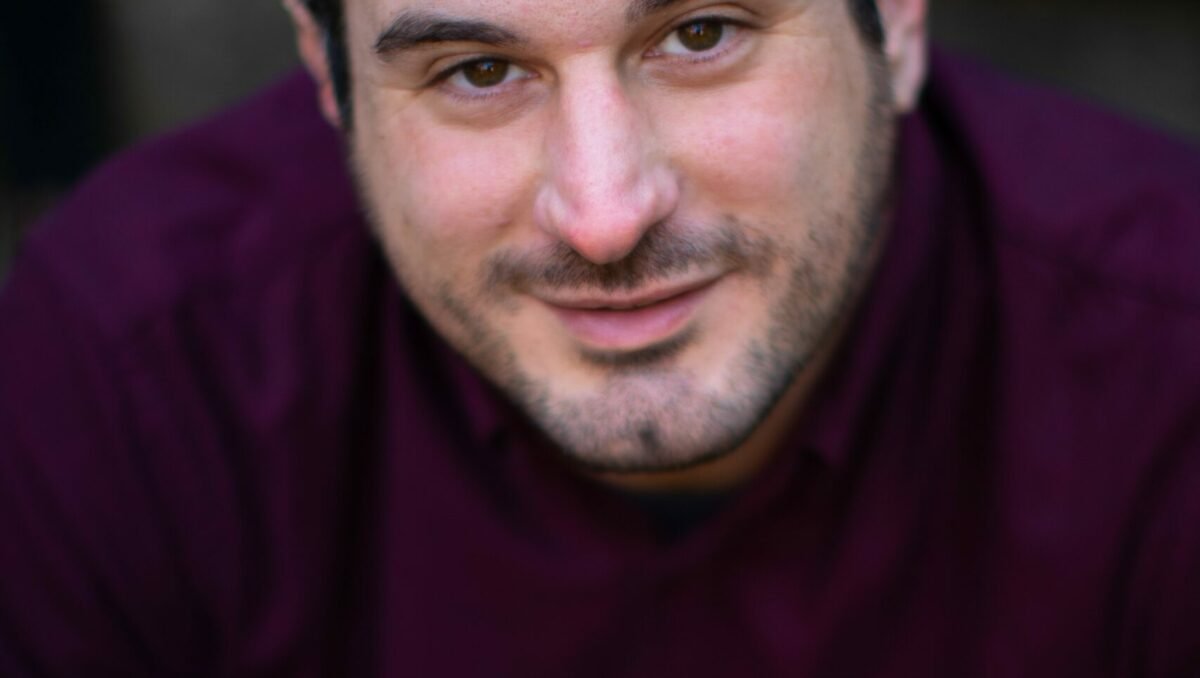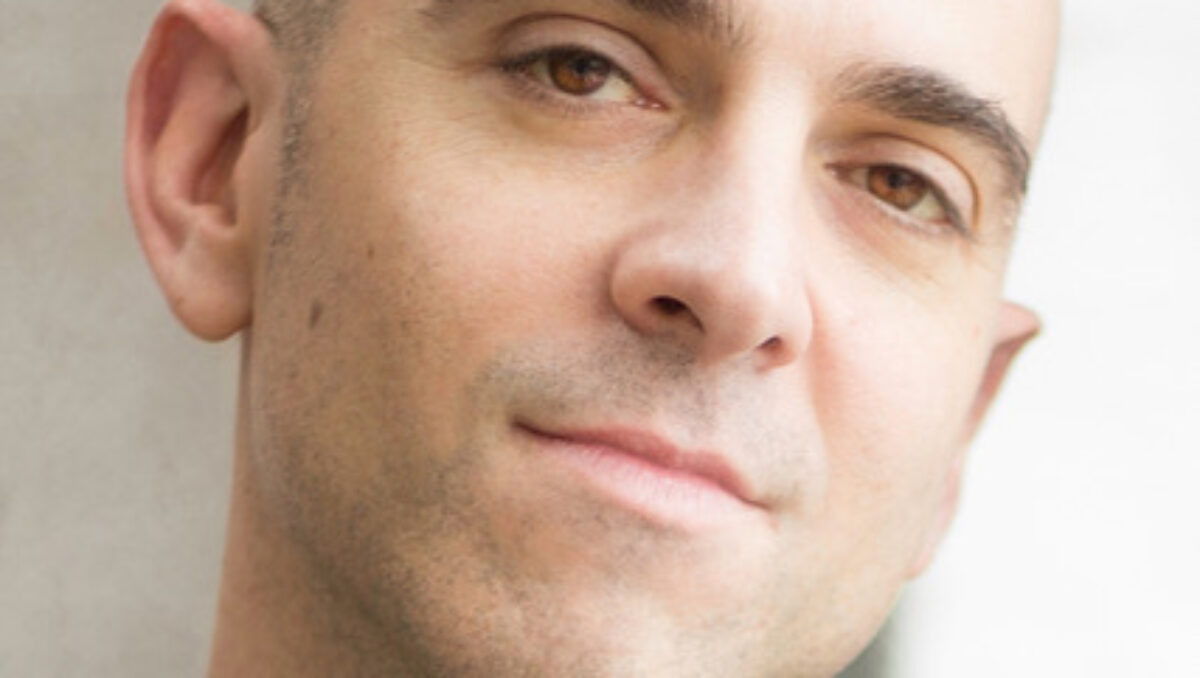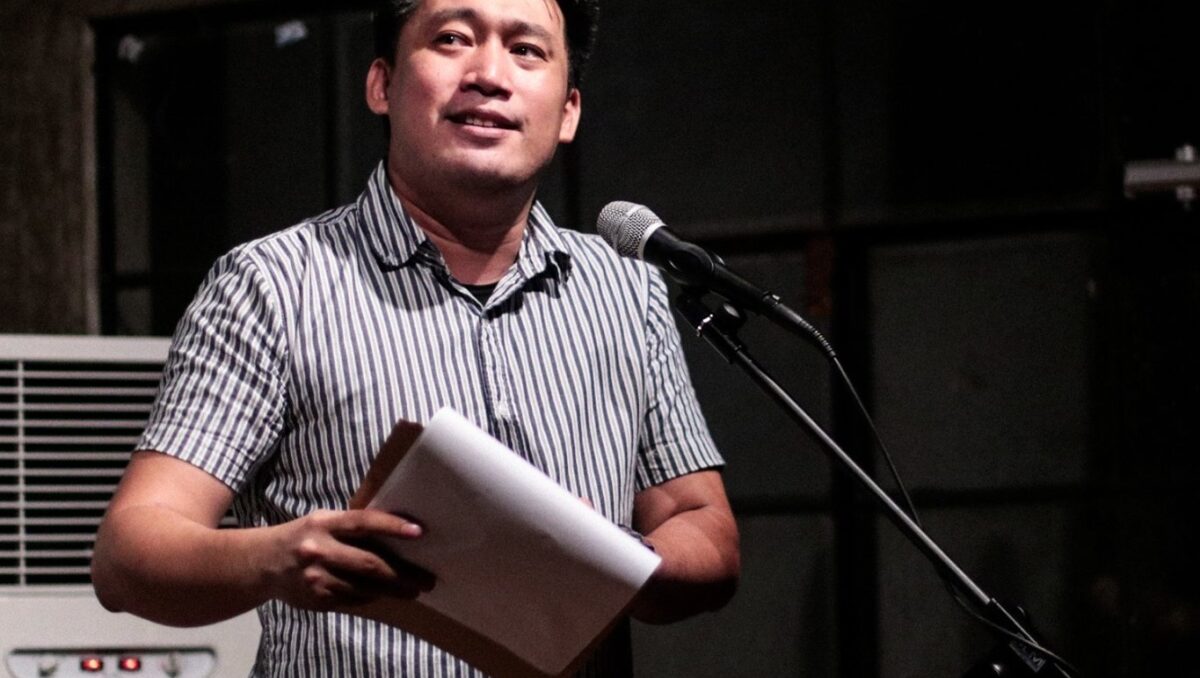ISSUE 25
POEMS
EN ROUTE by Suphil Lee Park
TWO POEMS by Alexandra Teague
GHAZAL NO. 2 by M. Cynthia Cheung
[MY GRANDFATHER WALKED IN THE SNOW] by Cleo Qian
IN THE END, THE ALEFS CURL by Iqra Khan
THREE POEMS by Mónica Gomery
GEOMETRY by Karen Kevorkian
from PSALMS OF LAMENT FOR DIVINE IMPERATIVES by Jennifer Metsker
TWO POEMS by Jimin Seo
THE PLEASURE IS IN THE WORK by Stella Hayes
WHAT ELSE COULD I HAVE DONE by Mikael de Lara Co
FICTION
MY DINNER THEATRE WITH ANDRÉ by Christopher Hebert
KHOSHBAKHTAM by Kent Kosack
TRANSLATION
from RED MELANCHOLIA by Helena Boberg trans. Johannes Goransson (from SWEDISH)
AND WHAT HAPPENS IF I WANT TO NAME EVERYTHING?, ASKS THE FEMALE DISCIPLE by Mayra Santos-Febres trans. Seth Michelson (from SPANISH)
THREE POEMS by Bronka Nowicka trans. Katarzyna Szuster (from POLISH)
from HOW DARK MY SKIN IS LEFT BY HER SHADOW by Beatriz Miralles de Imperial trans. Layla Benitez-James (from SPANISH)
[UNTITLED] by Vladislav Hristov trans. Katerina Stoykova (from BULGARIAN)
FROM NORTH by Baek Seok trans. Jack Jung (from KOREAN)
WHEN OTHER PEOPLE ARE WRITING POEMS by Oh Kyu-won trans. Jack Jung (from KOREAN)
TWO POEMS by Ashraf Zaghal trans. Ghada Mourad (from ARABIC)
- Published in All Issues, ISSUE 25, Issues 2
TWO POEMS by Ashraf Zaghal trans. Ghada Mourad (from ARABIC)
Halloween
Scene 1
Scarves fly
As if a tribe of ghosts carry them to the sky
They fly and land with sin on my neighbor’s head
My neighbor knows neither their names
Nor hers
Scene 2
Scarves run toward the angels
The angels are unusually black
It’s said to be a costume party
It’s said to be a cheerful consolation
Of the deceased who is in the well
Two ghosts are guarding the well
Scene 3
Shoes are set up on the wall according to the angels’ wishes
“Vanilla scented angels”
Shouts the shoe seller
Who was also selling the prayer to enter the ceremony
Scene 4
Who are you?
Satan said when he saw them coming out of the well
Who are we?
They said
When they slaughtered him
A Poet
When a poet dies
His arm goes to a rose he did not pick
The rose becomes pregnant with a word the poet coveted
Then she throws her newborn in the hand of another poet
When a poet dies
His eyes go to the tattoo of a woman in a remote nightclub
His eyes kiss the tattoo and throw their tears in this woman’s desire
The woman’s desire is now in the eye of another poet
When a poet dies
His head goes to a silver plate in Salome’s hand
Salome covers his head with seven handkerchiefs
And a pain borne by the head of another poet
When a poet dies
His feet go into the house of condolences
He drinks coffee and shakes hands with the mourners
While thinking he is at the funeral of another poet
When a poet dies
His chest goes to a war he much wished for
His chest drinks the stabs like an old wrestler, and he dies often
Because the one who writes his death is another poet
TRANSLATOR BIO:
 Ghada Mourad holds a PhD in comparative literature with emphasis in translation studies from the University of California, Irvine. She translates from Arabic and French into English. Her translations have been published in Asymptote, Banipal, The Literary Review, Metamorphoses, Transference, A Gathering of the Tribes, English Pen, Denver Quarterly, Two Lines, Arablit, among others.
Ghada Mourad holds a PhD in comparative literature with emphasis in translation studies from the University of California, Irvine. She translates from Arabic and French into English. Her translations have been published in Asymptote, Banipal, The Literary Review, Metamorphoses, Transference, A Gathering of the Tribes, English Pen, Denver Quarterly, Two Lines, Arablit, among others.
- Published in ISSUE 25, Translation
WHEN OTHER PEOPLE ARE WRITING POEMS by Oh Kyu-won trans. Jack Jung (from KOREAN)
Sleep does not come for many nights.
Today I waited for my unclosing eyes again
and sleep fell asleep first and sleep’s clothes and shoes
and door talisman went to sleep too
I alone lowered my gaze and watched sleep
who was sleeping without me.
Exhausted sleep collapsed beside me and curled its body
and snored ever so lightly.
Where is my sleep.
My sleep might be shuffling outside my door now and again
before it returns to where it comes from
because I hear crumbling sand.
The fact that I am writing my poems when others are theirs
is really an embarrassment
my jolted poems making strange noises
and sleep will not come. Who sleeps my sleep
who won’t come to me.
Other’s sleep is sleep’s peace and
my sleep is sleep’s death and
other’s sleep is sleep’s dream and
my sleep is sleep’s reality and
my sleep for my sake
cried and cried where did it go.
TRANSLATOR BIO:
 Jack Jung is a graduate of the Iowa Writers’ Workshop, where he was a Truman Capote Fellow. He is a co-translator of Yi Sang: Selected Works (Wave Books 2020), the winner of 2021 MLA Aldo and Jeanne Scaglione Prize for a Translation of Literary Work. He currently teaches at Davidson College.
Jack Jung is a graduate of the Iowa Writers’ Workshop, where he was a Truman Capote Fellow. He is a co-translator of Yi Sang: Selected Works (Wave Books 2020), the winner of 2021 MLA Aldo and Jeanne Scaglione Prize for a Translation of Literary Work. He currently teaches at Davidson College.
- Published in ISSUE 25, Translation
FROM NORTH by Baek Seok trans. Jack Jung (from KOREAN)
Once upon a time I left behind
The tribes of Buyeo and Suksin and Balhae and Yeojin and Yo and Geum
And Heungahnryeong and Eumsan and Amoowooreu and Soonggari
I betrayed the tiger the deer and the raccoon
And lied to the trout the catfish and the frog I left them behind
At the time
remember how the birch and the larch grieved
I have not forgotten the reed and the beewort pleading with me to stay
And how the Orochon tribe hunted a hog and held for me a departing feast
And how the Solon tribe followed me for ten miles and wept I have not forgotten
At the time
No sorrow or grief weighed me down I could beat them
I came lazily to the distant south
And under the warm sun I dressed in white and ate smooth food
And drank sweet spring and took midday naps
At nights I woke surprised by the distant howling of dogs
During days I bowed down to every passing person
But I did not know my shame
During that time the stone was broken and gold and silver were buried beneath earth
The crow too gave birth to a long line of lineage
And after all this when a new day rose once upon a time
I was chased down by sorrow and grief that I truly could not beat
And I returned to the old sky the land – back to my placenta
But now the sun is old the moon is pale the wind is insane a wedge cloud
Alone soullessly floats around
O my ancestors my brothers my family my sweet neighbors my longing
My love my worship my pride my strength are no more
They have passed together with the winds and the waters and the years they are gone
TRANSLATOR BIO:
 Jack Jung is a graduate of the Iowa Writers’ Workshop, where he was a Truman Capote Fellow. He is a co-translator of Yi Sang: Selected Works (Wave Books 2020), the winner of 2021 MLA Aldo and Jeanne Scaglione Prize for a Translation of Literary Work. He currently teaches at Davidson College.
Jack Jung is a graduate of the Iowa Writers’ Workshop, where he was a Truman Capote Fellow. He is a co-translator of Yi Sang: Selected Works (Wave Books 2020), the winner of 2021 MLA Aldo and Jeanne Scaglione Prize for a Translation of Literary Work. He currently teaches at Davidson College.
- Published in ISSUE 25, Translation
[UNTITLED] by Vladislav Hristov trans. Katerina Stoykova (from BULGARIAN)
the mobilizing of the troops
coincided with the amassing
of numerous migrating birds
only magpies crows and vultures
will winter here
sparrows titmouses finches
and the rest of the feathered ones
will seek the path to their salvation
some will become too attached to people
others will live in holes and shelters
in both cases
nobody again will call them
birds
TRANSLATOR BIO:
 Katerina Stoykova is the author of several award-winning poetry books in English and Bulgarian, as well as the Senior Editor of Accents Publishing. Her latest book, Second Skin (ICU, 2018, Bulgarian) received the Vanya Konstantinova biannual national poetry award, as well as a grant from the European Commission’s program Creative Europe for translation and publication in English. Katerina acted in the lead roles for the independent feature films Proud Citizen and Fort Maria, both directed by Thom Southerland. Her poems have been translated into German, Spanish, Ukrainian, Bangla, Farsi, and a volume of her selected poems, translated into Arabic by acclaimed poet Khairi Hamdan, was published in Arabic from Dar Al Biruni press in 2022.
Katerina Stoykova is the author of several award-winning poetry books in English and Bulgarian, as well as the Senior Editor of Accents Publishing. Her latest book, Second Skin (ICU, 2018, Bulgarian) received the Vanya Konstantinova biannual national poetry award, as well as a grant from the European Commission’s program Creative Europe for translation and publication in English. Katerina acted in the lead roles for the independent feature films Proud Citizen and Fort Maria, both directed by Thom Southerland. Her poems have been translated into German, Spanish, Ukrainian, Bangla, Farsi, and a volume of her selected poems, translated into Arabic by acclaimed poet Khairi Hamdan, was published in Arabic from Dar Al Biruni press in 2022.
- Published in ISSUE 25, Translation
from HOW DARK MY SKIN IS LEFT BY HER SHADOW by Beatriz Miralles de Imperial trans. Layla Benitez-James (from SPANISH)
a poem
where I shatter self
where I say no
*
no:
no offering
no trembling
no hands
no thirst
no telling
now more
*
no
no longer
this broken language
*
empty of you
these hands
dry pail
*
I am a silent river
for her to pass through
and unknow her skin
on the water’s skin
her body inscribed onto mine
*
you’ve left no space for your absence
in these hands
nothing survives you
TRANSLATOR BIO:
 Layla Benitez-James is a 2022 NEA fellow in translation, a 2022/23 National Book Critics Circle Fellow, and the author of God Suspected My Heart Was a Geode but He Had to Make Sure, selected by Major Jackson for Cave Canem’s 2017 Toi Derricotte & Cornelius Eady Chapbook Prize. As Director of Literary Outreach for the Unamuno Author Series in Madrid, she edited its poetry festival anthology, Desperate Literature. Poems and essays are published in Modern Poetry in Translation, Black Femme Collective, Virginia Quarterly Review, Latino Book Review, Poetry London, and forthcoming in Poetry Magazine. Layla received an MFA in poetry from the University of Houston and has published reviews with Poetry Foundation’s Harriet Books.
Layla Benitez-James is a 2022 NEA fellow in translation, a 2022/23 National Book Critics Circle Fellow, and the author of God Suspected My Heart Was a Geode but He Had to Make Sure, selected by Major Jackson for Cave Canem’s 2017 Toi Derricotte & Cornelius Eady Chapbook Prize. As Director of Literary Outreach for the Unamuno Author Series in Madrid, she edited its poetry festival anthology, Desperate Literature. Poems and essays are published in Modern Poetry in Translation, Black Femme Collective, Virginia Quarterly Review, Latino Book Review, Poetry London, and forthcoming in Poetry Magazine. Layla received an MFA in poetry from the University of Houston and has published reviews with Poetry Foundation’s Harriet Books.
- Published in ISSUE 25, Translation
THREE POEMS by Bronka Nowicka trans. Katarzyna Szuster (from POLISH)
INCALCULABILITY
Things and people often disappear at night, so in the morning you account for yourself with the help of your hand. See if you have incurred losses of yourself. There are ten toes on your feet, five in each flock. None should be missing from the herd. Your eyes are in your head, tucked in alone on each side of your face. Two knees, elbows and two clavicles. The twinless tongue lies in its burrow. One mouth, though cracked in half. Close it when you’re done counting. “I still have me” – affirm and write the result on a paper slip. Or admit: “I have lost my mind.”
CALCULATION
One is a human, alone under their skin. Ask the foreman what one means – he will point to himself. He also knows what two is: a sparrow’s wings, a pair of shoes, eyes. Human hands: a measure of duality hanging by the sides. Anything they both take at one time means two. Two has its own weight, can be grasped. Immediately after two begins a lot. Far too many: fingers, hair, years. It is difficult for the foreman to tell how much he has. So he does not count and remains incalculable.
ILLUSION
Apprentice: How is the illusion created?
Foreman: You employ word machines and kaleidoscopes.
Apprentice: Is the item big?
Foreman: Not very, but stretchy.
Apprentice: What is it?
Foreman: Imaginary in the back of life. A box theater.
Apprentice: And the repertoire?
Foreman: Light. You can’t hear existential refrains.
Apprentice: What else is not there?
Foreman: Death preliminaries. Just mirabilia, skullduggery of welfare.
Apprentice: Isn’t that a burden?
Foreman: Yes, because there’s no growth.
Apprentice: Why?
Foreman: It’s not real.
Apprentice: Who visits this place?
Foreman: The ones mistakenly in love.
TRANSLATOR BIO:
 Katarzyna Szuster-Tardi is a translator. She earned her M.A. in English studies from the University of Lodz, Poland. She has translated various Polish poets into English, such as Miron Białoszewski, Justyna Bargielska, Bronka Nowicka, and Hanna Janczak. Recently, she co-translated Kim Yideum’s Hysteria into Polish. She also rendered Don Mee Choi’s poems into Polish in the collection Odmiany Łapania Tchu[Variants of Catching Breath]. Her newest translations of poems and essays have been published in Conjunctions, Circumference, Hunger Mountain Review, Sextant Review, Denver Quarterly, Michigan Quarterly Review, Tripwire, LIT, Berlin Quarterly, and Seedings. Photo Credit: Marta Zgrajka
Katarzyna Szuster-Tardi is a translator. She earned her M.A. in English studies from the University of Lodz, Poland. She has translated various Polish poets into English, such as Miron Białoszewski, Justyna Bargielska, Bronka Nowicka, and Hanna Janczak. Recently, she co-translated Kim Yideum’s Hysteria into Polish. She also rendered Don Mee Choi’s poems into Polish in the collection Odmiany Łapania Tchu[Variants of Catching Breath]. Her newest translations of poems and essays have been published in Conjunctions, Circumference, Hunger Mountain Review, Sextant Review, Denver Quarterly, Michigan Quarterly Review, Tripwire, LIT, Berlin Quarterly, and Seedings. Photo Credit: Marta Zgrajka
- Published in ISSUE 25, Translation
AND WHAT HAPPENS IF I WANT TO NAME EVERYTHING?, ASKS THE FEMALE DISCIPLE by Mayra Santos-Febres trans. Seth Michelson (from SPANISH)
what happens if i want to speak children
say beloved
embrace this solitude?
the signs will kill you, warn far-sighted voices,
the parallel paths of the law will kill you
many women have tried and failed
their names are the names of names
they come from everywhere
are written in every tongue
sing from every tribe of the species
the voices say the only answer is giving up
the utopian solitude of the amazons
alone in a room
the perpetual battle of the wise woman turned to witch
and ash
or the scribe alone defending her parchment from the fire
old women sing the secret litany of their daughters
Sei Shōnagon
Murakami
Scheherezade, who obtained the prize of silence and love
by defeating predation with her song
Hypatia
Rosalinda
abbess von Bingen
the heretic monk Juana,
Teresa, Alfonsina, Pizarnik,
the strange Gabriela del Rocío,
María Luisa Bombal, Julia, Ángela
the list is long
giving-up, ever so small, the giving-up,
or you choose love, the tiny homeland of the house
or you choose the broad land of words.
TRANSLATOR BIO:
 Seth Michelson is a poet, translator, and professor of poetry at Washington and Lee University, where he founded and directs the Center for Poetic Research. He has published 18 books of original poetry in English and in Spanish, poetry in translation, and the anthology Dreaming America: Voices of Undocumented Youth in Maximum-Security Detention. His many honors include fellowships from the Fulbright Foundation, the National Endowment for the Arts, the Mellon Foundation, and the Lenfest Foundation, as well as prizes from Split This Rock, the International Book Awards, the Paterson Poetry Prize, and the American Studies Association
Seth Michelson is a poet, translator, and professor of poetry at Washington and Lee University, where he founded and directs the Center for Poetic Research. He has published 18 books of original poetry in English and in Spanish, poetry in translation, and the anthology Dreaming America: Voices of Undocumented Youth in Maximum-Security Detention. His many honors include fellowships from the Fulbright Foundation, the National Endowment for the Arts, the Mellon Foundation, and the Lenfest Foundation, as well as prizes from Split This Rock, the International Book Awards, the Paterson Poetry Prize, and the American Studies Association
- Published in ISSUE 25, Translation
from RED MELANCHOLIA by Helena Boberg trans. Johannes Göransson (from SWEDISH)
They have grabbed me opened up
cut loose reshaped my nature
spared a cypher from being extinguished
begun a protracted illness
The room tightened
brought my life sphere
one step closer to my body
underneath was a blind area
As if I voluntarily donated
my silent tissue to these violent
cells entrusted me as a mother ship
host animal for endgames and destruction
The I function non-sovereign in this drama
why talk about function as if I
with language could control these whispering
crystal spores mythological stalactites
without intent or anthropomorphic characteristics
Melancholic pursuit of pleasure
eats up the time
I should spellbind dusk
which always starts over
If only the magical organs
were here capable of
placing me in the orbit that
refines all organic material
TRANSLATOR BIO:
Johannes Göransson is the author of nine books of poetry and criticism, most recently Summer (2022), and the translator of several books of poetry, including works by Aase Berg, Ann Jäderlund, Kim Yideum, and, most recently, Eva Kristina Olsson’s The Angelgreen Sacrament (Black Square Editions, 2021). His poems, translations and critical writings have appeared in a wide array of journals in the US and abroad, including Fence, Lana Turner, Spoon River Review, Modern Poetry in Translation (UK), Kritiker (Denmark) and Lyrikvännen (Sweden). He is a professor in the English Department at the University of Notre Dame and one of the editors of Action Books.
- Published in ISSUE 25, Translation
KHOSHBAKHTAM by Kent Kosack
Fifi leased her mother a Kia Rio and her mother hates her for it. She tries to deflect and asks her mother about her coworker, Mindy. Poor Mindy.
“Mindy? Didn’t I tell you about Mindy? About my glasses? My Miklis?” her mother says.
Fifi shakes her head, looks at the bare walls of her mother’s central New Jersey apartment and feels like she has to learn everything there is to know about Mindy. “I don’t think so. I’d remember.”
“Mindy is practically blind. Looks like a bag lady. Which is fine because she sells handbags, but I wouldn’t buy one from her. No sense of style. Sort of like you with that hideous car you got me,” she says, taking a sip of the Turkish coffee she’s just made. She sips the foam off the familiar caffeinated sludge out of the familiar cup, a demitasse, the last of a long-lost set, its sisters stolen a decade ago when Fifi’s mother’s storage unit was broken into and most of her possessions — “my life, Fifi, my whole life”— were stolen. Its white ceramic is decorated with swirling, pastel flower petals. To Fifi the petals look like smudged fingerprints, a child’s drawing.
“Did Mindy steal your Miklis?”
Another sip. Fifi’s mother eyes her over the cup with a look that seems to ask are you really mine?
“Are you even listening? Mindy wouldn’t know a pair of Miklis from gas station readers. Mindy, useless, that one. She follows me around the store all day, eavesdropping, trying to copy my style, the way I sell. I’m not paid to teach Mindy how to do her job. They would have to pay me triple just to get her to understand the difference between a Rolex and a Timex.”
Fifi glances at the Timex on her own wrist. A little plastic military watch she bought a week ago hoping its martial design might make her decisive and help her process the results of the test she took that say her body is going to produce a child unless she does something to stop it. Instead of deciding, she left her husband, clueless, in New Hampshire. And came to Jersey. To her mother. Poor Fifi.
Her mother isn’t clueless. Seems to sense something. Fifi thinks of her as a medic in a warzone, expert at sniffing out rotten wounds. Except her mother has no interest in healing them.
“So how is that husband of yours?”
“He has a name.”
“Excuse me, I didn’t know we were being formal. How’s Josh?” her mother says, over-emphasizing the last two letters like she’s shushing Fifi before she has a chance to answer.
“He’s fine,” Fifi says, a bit too quickly. Though it’s not a lie. He’s fine, she thinks. They, as a couple, though, are not. Or maybe she is the problem. Her inability to be fine is cast in stark relief by his enduring fineness.
“You could have done better.”
“Mom, let’s not start this.”
“Fifi, you were a straight-A student. You went to a great school. Had every opportunity.”
“Mom, please.”
“And you decided to marry some oaf from the Midwest and move to the woods. To New Hampshire.”
“We don’t live in the woods,” Fifi says, half-heartedly defending her husband of six years, her home, her choices.
Her mother laughs. “New Hampshire? Who’s even heard of such a place?”
“But what happened to the Miklis?”
“The what?”
“The Miklis. And Mindy,” Fifi says, clinging to the fate of the glasses like a lifeline.
Her mother takes her final slurp and flips the cup upside down in its saucer to let the sludge slide down its sides and harden. She’ll read her fortune later in its muddy lines. “Well, last week, Wednesday I think, I was closing. Working the late shift. On my feet all day at seventy-two. On my feet selling clothes to these obnoxious New Jersey nobodies and all I want is a nice little SUV and my daughter, my only daughter, who’s supposed to help me, marries a contractor, moves to the woods, and makes me drive a sedan—”
“Mom.”
“And Mindy is stuck to me like a parasite in cheap shoes when in walks this group of Russian tourists. Very tacky, the Russians.”
“Mom.”
“What? I’m not prejudiced. They’re a pain in the ass. Ask anyone. Pushy people. Though they used to give your grandfather cans and cans of caviar. He never touched them. He only ate Persian caviar. But I wasn’t so picky,” her mother says, smiling, remembering the caviar and her family’s wealth that had made it a kitchen staple instead of a luxury. “I’ll bet Josh has never even had caviar. They probably don’t know what it is out in Wisconsin.”
“He’s from Minnesota, Mom. You know that.”
“Wisconsin, Minnesota, whatever. I need to lie down,” she says. “This whole Kia ordeal has taken a lot out of me. Help yourself to a lamb shank. It’s on the stove.”
“I’m not hungry.”
“Pack it up and take it to New Hampshire, then. Give it to your husband.” She laughs to herself. “Though he doesn’t like lamb, does he?”
“What about Mindy and the Miklis?”
“Mindy? Oh. They fired her.”
“What? Why?”
“She’d been shoplifting for years.”
“How did they finally catch her?”
“I told HR.”
“What? I thought she was your friend?”
“Friend? No. I can’t be friends with a thief. She’s just someone to talk to.”
“And the Miklis?”
“What about them?”
“Did Mindy steal them too?”
“Steal them? She doesn’t even know who Alain Mikli is. She’s too stupid to steal them. Why do you keep going on about the Miklis?”
“You mentioned them before.”
Her mother waves her hand lazily. “I’m going to take a nap.” She heads to her bedroom, closes the door, and turns the television on.
Her mother is watching tennis from the sound of it. Fifi doesn’t know how her mother’s aging eyes can follow the quick back-and-forth anymore, but maybe it doesn’t matter. Maybe hearing the ball bounce off the clay, the serve and return, is its own sort of entertainment. Before long, her mother’s snores grow louder than the players’ serves.
*
Fifi wakes from her nap to her mother hovering over her, eating peanut butter out of a jar by the tablespoon. Fifi fell asleep on the guest bed, an inflatable single she bought her mother last year. She didn’t spring for a double because she hoped she’d never have to visit. And bringing Josh to visit her mother would be like feeding chum to a shark.
“The Russian tourists loved me.”
“What?”
“At work. They took photos with me. They thought I was Elizabeth Taylor.”
“Isn’t she dead?”
“They didn’t know that.”
“Did you tell them you weren’t?”
“No, why would I ruin their day?” her mother asks, smacking her lips as she loads up another spoonful of peanut butter. “I pretended to be her, not an employee but a customer. I walked around and they followed me and I told them about my dear, sweet Richard Burton.”
“What did they say?”
“How would I know? I don’t speak Russian,” she says. “I was never good with languages. Your grandfather, now he was gifted. He spoke French, Farsi, Arabic, Turkish, English, some Russian too. Like you when you were in school, remember? You did so well in Spanish. By the way, how many languages does Josh speak?”
Fifi remembers her Spanish class. Memorizing all those words, the feminine, the masculine, the charts of foreign tenses. Trying hard to be like her multilingual, cosmopolitan mother, but sensing that no language would bring them any closer. “Mom.”
“What, sweetie? Want some peanut butter?”
Her mother doesn’t see her shake her head in the dark. “Why didn’t you let me learn Farsi when I was a kid?”
“Farsi? Why would you want to learn Farsi?”
“To learn about my culture, my background. To be able to talk to Grandma,” she says, not adding: to be able to talk to you.
“Don’t be stupid. It’s a useless language. No one speaks Farsi except for Persians, and you’re never going there, so what would be the point?”
“I like the sound of it.” She remembers her grandmother’s summer visits and how she insisted on telling Fifi bedtime stories. Though Fifi couldn’t understand a word of Farsi, she liked not falling asleep alone.
“French is prettier. You should have studied French. Comment allez-vous, Madame?”
Fifi sits up. The inflatable bed squeaks, loses air. “What time is it?”
“Eight o’clock.”
Fifi remembers her own watch, confirms the time. She looks out the window at the Kia in the parking lot. It’s blue-black now in the dark, the color of pavement. “I thought it was later. Midnight.”
Her mother grabs her shin and says, “Moosh moosh,” like she did when Fifi was a kid, holding Fifi’s feet together to keep them from growing. She’d press Fifi’s head, too, to try to keep her small. “You hungry? I made ghormeh sabzi for you.”
“No, I’m not. I barely touched the lamb shank. Thanks, though.”
Her mother’s tone changes, sharpens. “Well, get up. You have to eat it. I won’t.”
“Why’d you make it, then?”
“For you. I don’t know. Habit? I hate Persian food. It’s so bland. Come on, up, up,” she says, pulling the blanket off Fifi and heading to the kitchen. She turns on the light and the burner beneath the stew. Smells of turmeric, onion, lime. “I also made rice.”
Fifi’s mother scoops out the saffron-colored rice, the bottom crisp and crunchy, and heaps it into a white bowl. They sit at the tiny table in the living room, an iron bistro set more at home on a balcony overlooking the French Riviera than the marshlands of central Jersey. Her mother watches her eat the stew one green spoonful at a time.
*
After dinner, her mother returns to the television, and Fifi slinks out seeking fresh air. She walks around the complex, a sprawling fifty-five and older community with a few low-income units managed by HUD that her mother, with Fifi completing the paperwork, was lucky to get.
Of course, her mother hates the place, the people. She calls it “the swamp.” Says it smells of death. And it is next to a swamp, a patch of wetland turned into a nature preserve. Fifi stands at the edge of it, where the pavement abuts the vegetation, and calls Josh.
He answers on the second ring. “You strangle her yet?”
“I’m tying the noose as we speak. Only I’m not sure if it’s for me or her.”
“I take it she’s not grateful for the car?”
“She has a car that runs. That’s all that matters,” she says, hearing her husband breathe through the line, reading into each inhale, trying to discern their future.
“We could have gotten her one she wanted. An SUV or something. She’s your mother after all.”
“With what money?”
“We can swing it. Money isn’t everything.”
“Don’t be naïve,” she says, addressing both her husband and the swamp. In November, the swamp doesn’t feel so alive, so hot and sticky. It doesn’t feel like anything.
“Do you want me to come down there? I can catch a morning flight to Newark,” her husband asks her from their kitchen table three hundred miles away. She realizes her mother lives in central New Jersey’s version of the woods. When she doesn’t answer, he says, “Fifi? Farideh?”
She hangs up when she hears her Persian name. It means delightful in Farsi. She can’t help but think she was misnamed.
She returns to her mother’s snores and ladles the stew into plastic containers to put in the fridge. Neon yellow stains from the turmeric speckle her top. She opens her mother’s eyeglass case on top of the microwave and puts on her red Miklis. She tries to feel as stylish and elegant as her mother but the prescription is wrong, far too strong. The appliances look foreign, warped, monstrous. She takes them off. Her eyes take a while to refocus. The blurriness lingers.
*
In the morning, her mother sits on the end of the inflatable bed, pushes Fifi’s legs to the side and hands her a photo of her father shaking hands with the last Shah of Iran.
“Where’d you find this?” Fifi asks.
Most of the family photos are gone, stolen from the storage unit along with the family heirlooms—gold bangles, Persian turquoise earrings, bright blue rugs from across Iran.
“I forgot I had it in the glove compartment of the Saab. I cleaned it out. You can keep it.”
Fifi holds the photo as carefully as she imagines her father may have held her. She has no memory of him. He was shot outside the diner he owned in Ramsey when she was two. Murdered during a robbery, the police said, though her mother always claimed it was payback for things he’d done, terrible things, when he was a member of Savak, the Shah’s secret police. In the photo he looks dark and handsome, darker than Fifi by a few degrees. He looks like a stranger.
“I’m pregnant,” Fifi says.
“Your father was a lovely man,” her mother says. “A very handsome fool.” She stands, shaking her head. “I’ll toast you a bagel.”
*
Her mother forces Fifi to read her fortune in yesterday’s coffee grounds. Fifi used to love it, as a kid, sitting around with her mother’s clique of Iranian friends, pro-Shah refugees, drinking thick coffee and eating tiny cookies made from chickpea flour, crumbly and redolent of cardamom. She saw no futures in the cups but liked making up stories about the streaks, pretending they were people, exotic places, vast fortunes. Her mother said she had a gift for it.
“Mom, I’m not in the mood,” she says, taking the cup from her nonetheless.
“It’s not your fortune, what do you care?”
Fifi looks at the mud. There are shapes in it, shapes that could be figures. Her mother’s former lover about to sweep her away to Dubai or Majorca; her aunt visiting or dying or winning the lottery; the widower across the street buying her mother flowers. One thick gob could pass for a car. Another for a child. Fifi shows it to her.
“It looks like the fortune has already come to pass, mom. See? A car.”
“It doesn’t look like a car to me.”
“A new car,” Fifi insists, “That your daughter will go out of her way to get. She’ll take time off from work and drive across four states to come lease a car for you so you don’t get stranded in the middle of nowhere in your ancient Saab.”
Her mother is painting her nails a rich purple, the skin of a plum. “Well, I hope so. I really do. Because I need a new one. I won’t be caught dead in that blue piece of shit.”
“You’re impossible.”
“What does that mean? Is it too much to want a decent car? After all I did for you?”
“You’re so fucking entitled,” Fifi says, putting the cup right-side up in its saucer.
“What do you know about it? Did you have your whole country taken from you by a bunch of lunatic mullahs? Did you have to leave your friends and family behind? Your culture? Your language? Did you see your husband’s body after it was gunned down in the street? Did you?”
“And that’s my fault?”
“No. I guess it’s not,” she says, looking especially thoughtful. She closes the bottle of polish, puts on her Miklis, spends a minute examining the muddy fortunes in her cup.
“Whose then?”
“Your father’s.”
“How do you figure?”
Her mother puts the cup down and blows on her left hand, each nail glossy. “I didn’t want to come to the US. We had money at the time. My friends were settling in London. It was the sixties. People were having fun. But your father dragged me to New Jersey.”
“You didn’t get to see the Rolling Stones in concert and eat fish and chips and ride the tube to work, and that’s my fault?”
“We came here,” she says, waving her hands in the air to dry the polish.
“Is that so bad?”
“And I had you.”
Fifi looks at the mud in the cup, but there is nothing but spent grounds. “What does that mean?”
Her mother rests her hands in her lap, palms down. “I never wanted kids. He did. So I had you. And he got himself killed. Which meant all I had was you. And I’m sorry, compote, but sometimes children aren’t enough.”
Fifi starts crying. Her mother’s cell phone rings.
“It’s that idiot, Mindy,” she says to Fifi.
“Does she know you got her fired?”
“She got herself fired. She stole the tackiest jewelry, stuff I wouldn’t wear if you put a gun to my head. But yes, she knows I reported her. I told her.”
“And she still calls you? What’s wrong with her? Isn’t she furious?” Fifi takes off her watch, holds it in front of her like prayer beads, runs her thumb over its plastic face.
“There’s nothing wrong with her. I’m irresistible.” Her mother smiles, answers Mindy’s call. “Hi, sweetie! How are you? Can you hold on one second?” She covers the phone with her hand. “Compote?”
“Yeah?”
“Want my advice?”
Fifi doesn’t or doesn’t think she does but can’t help but nod her head.
“Learn from my mistakes,” she says. “Live your life.” She walks into the kitchen and says to Mindy, “Busy? Me? No. I’m not doing anything. What is there to do in this swamp?”
*
Fifi sits in the Kia Rio and stares at the wetland. She puts her mother’s Miklis on the dashboard facing her. It’s quiet here. Peaceful, senior living. Her mother is inside watching tennis again. She runs her hands along the wheel and feels the clean vinyl, takes in the fresh smell of plastic and new upholstery. She calls Josh. He picks up on the first ring.
“Fifi, honey, hi.”
“Hi.”
“When are you coming home?”
She hears her whole life in the last word. “Sobh bekhyer,” she says, the Persian for good morning. Her grandmother taught her a number of phrases when she stayed with them. The language feels soft and familiar.
“What?”
“Esme man Farideh ast,” she says. My name is Farideh.
“Honey, I don’t understand. What are you saying?”
“Khoshbakhtam. It’s Farsi,” she tells her husband.
“Oh. Ok. What does it mean?”
“Nice to meet you,” she says.
“Well, khoshbakhtam to you too.”
She leans forward, rests her head on the steering wheel, and hangs up. Her phone rings again, but she picks up the Miklis instead. In her hands they feel no different than regular glasses, though they are much more fragile. She bends and twists one arm until she frees it from the frame, snapping the tiny metal hinge. She removes the next arm, places the three separate pieces in the glove compartment, and faces the swamp again. She grips the wheel, glances at her watch, and imagines steering straight over the marsh all the way to New Hampshire. Her phone rings and rings. But she’ll wait until she’s home to tell her husband it wasn’t him she was talking to.
- Published in ISSUE 25
MY DINNER THEATRE WITH ANDRÉ by Christopher Hebert
for Manuel
I was in the garage doing a load of laundry when my mother came to tell me Andrew Mulligan was in town. He’d been spotted at 2:53 p.m., bumming a cigarette outside the Waffle House. These were details highly suspicious in their specificity. Immediately, I called bullshit.
“Corroborated and verified,” she said. “Must’ve come home to visit his dear sweet ma.”
I did not and would not take the bait. Certain allowances might be made during the holidays, but for the record his ma was just as crazy as mine. The pair of them were passing their retirements glued to their computers, frantically disseminating the grievances of their favorite Russian bots.
According to my mother’s sources, Andrew Mulligan was dressed for the cold in duck boots and white pinstriped pants, a genuine fox stole tossed around his shoulders.
“Beard right up to his eyeballs,” she said, drawing a line across the top of her cheekbones.
On that point I did not require illustration. I’d seen his facial hair myself earlier that week on the cable celebrity news. Paparazzi had caught Andrew Mulligan at a Walmart in Bangor, Maine, wearing purple eyeliner and what they mistook for a wolfman mask. But I’d known the whiskers were all his own. Andrew Mulligan always had been a peacock among us pigeons.
Now, a few days later and more than a thousand miles south, he was here in the Tennessee hills. And lord help me so was I. In almost a week it’d be Christmas, the first anniversary of me having to leave New York and move back home, but now my failure had Andrew as a consolation. All my life he’d been surpassing me. Now he’d finally surpassed me in flaming out.
“He wants to see you,” my mother said, reaching into the basket of clothes I was tilting toward the machine. “Of course, I let him know it’s out of the question. What with your—” And here she scratched lightly at a mustard stain on a pair of sweatpants. “—sensitive constitution.”
Under this roof, certain differences between us on the topic of epidemiology had come to light over the last twelve months. But that’s not what this story is about. More curious was the factoid, so subtly revealed, that she and Andrew Mulligan had been talking? Had been talking about me? As if either of these lunatics had a leg to stand on.
I set the load on heavy spin.
I said, “I know just the place.”
Oh ho, it was going to be a merry Christmas after all.
*
The Lumberjack Brawl Dinner Theater was a ten-minute drive from my mother’s house, wedged between Meemaw’s Jamboree and the Dueling Banjos River Park. These were just a few of the cultural institutions for which we’d set about clearcutting the foothills of the Great Smoky Mountains. When Andrew and I were kids, there’d been just a single theme park, a mere handful of neon hillbillies. As a community, we’d needed several decades to master the art of mocking ourselves for profit.
In the early weeks after I’d finished unloading the boxes of my old life into my mother’s basement, I’d amused myself looking up the people I’d known in high school who’d never managed to leave. One of them was working at the Lumberjack Brawl. There were tremory cell phone videos of her performances you could find posted online. The show amounted to a sort of flannel Olympics, every event a different permutation of some kind of axe and some kind of wood. The dinner portion tended toward nachos and beer. But the place was one of the few venues in town that was fully outdoors. The moment my mother proposed that I go see Andrew Mulligan, the Lumberjack Brawl was my first and only thought.
As for my having so readily agreed, I was a little surprised myself. I suppose I thought it might be cathartic, maybe even help my cause. For the last week I’d been composing a holiday missive to Gena in my head. Now I could add to it every detail of Andrew Mulligan’s spectacular collapse. Before she left, abandoning me with no job and an apartment I couldn’t afford, she’d said my failures had made me insufferable. Not the failures themselves, she insisted, just me. She said she loved me but she “hadn’t signed on for a suicide pact.”
It’s not me, I’d tried to tell her. It’s the world we’re living in. Didn’t she see? There were only two kinds of people left, the takers and the losers—the Andrew Mulligans and me. There were the ones who got it all and the ones who got the shaft. And if now even the likes of him couldn’t manage to keep it together, what hope was there for the rest of us?
*
By text, Andrew Mulligan and I arranged to meet at the box office. He showed up wearing someone’s grandpa’s shawl sweater under a gold-sequined parka.
Back in high school it’d been a contest between us to see which of us could get away from here first, who could go farthest. I had no idea how badly I’d lost until one day, two or three years out of college, I was in the old AMC on Union Square and saw his name in the opening credits of a movie.
In college, before he dropped out and moved to LA, we’d been roommates. We’d shared a greasy railroad apartment above a pierogi shop in Greenpoint. Ours hadn’t been the kind of parting where anyone promised to stay in touch, so I wasn’t surprised to stumble across his debut the way I did. Nor was I shocked that he’d managed to pull it off so quickly. In New York I’d personally witnessed him getting cast in plays he hadn’t even auditioned for. In plays I had auditioned for. Why should Hollywood be any different?
Then around eighteen months ago, something happened. Several somethings, actually, all of them bizarre. Andrew Mulligan, seemingly out of nowhere, burned down a set, punched a grip, sunk a yacht, and was caught on camera stealing Slim Jims from a Conoco station. All in a matter of weeks. I admit at first I dismissed it all as one of those controlled implosions manufactured by PR hacks to hijack the public’s stupefied attention span. But the consequences were real. In the end, Andrew Mulligan got fired from every film he’d been working on, and I was torn between joy and disgust. In interviews he insisted it was all a conspiracy. There were secret forces out to destroy him. And he actually seemed to mean it. He’d become one of those nuts, the upscale, Hollywood version of our mothers. Soon I was tuning in nightly to watch botoxed gossips fret over the colorful spectacle of Andrew Mulligan—the most famous son of our tourist-trap town—throwing it all away.
*
In person his beard looked like the stuff my mother used to scour burnt pots. Underneath all that hair was a gaunt, grizzled face. It conveyed to the mind a montage of backwoods survival: Andrew Mulligan building a fire, rubbing sticks together, dressed in his $1,000 coat.
“You look like shit,” I said.
Next thing I knew, he had me in his arms. He squeezed till both our puffy coats deflated.
“Six feet, goddamn it!” I shouted. “Six feet!”
He just stood there grinning down at me from his ridiculous height, all bleached teeth and chapped lips.
Of course he wasn’t wearing a mask.
“Touch me again,” I said, “and I’m leaving.”
“Oh, Nate,” he said, “still taking everything so seriously.”
He knew I hated that name. Almost as much as I hated what he’d started calling himself in LA. As if anyone from East Tennessee had ever been an André.
I allowed him the satisfaction of being the one to buy my ticket.
The Lumberjack Brawl Dinner Theater was enclosed within a stockade fence. The stage wasn’t really a stage, more like a concrete patio. At the center was a swimming pool. A chain of logs bobbed across the water, a kind of floating bridge. A ring of pea gravel separated the performance area from the grandstand, which loomed above us. On the far opposite side, along the fence dividing the theater from a Costco parking lot, was a faux-rustic shed with white lines painted to look like mud chinking.
The grandstand was about a third filled. The other patrons were clustered together at the bottom, as close as they could get to the action, breathing all over one another. Vents under the seats were blowing hot air. It was five o’clock, the evening show.
I led the way, skirting the others. Single file, Andrew and I tromped up to the very top of the grandstand. Here we had rows and rows all to ourselves.
Meanwhile, Andrew Mulligan wouldn’t stop grinning.
“Just like old times,” he said, looking me over. “You haven’t changed a bit.”
Which meant—I couldn’t guess what. Unlike him I’d lost almost all my hair, and I was wearing the last pair of khakis Gena had bought me. They felt like the only memento I had left of my former adulthood.
For that matter, I could hardly imagine what old times he was thinking of. We’d never been friends, not really. Andrew Mulligan and I had met in eighth grade, just about the only two boys in the entire school to try out for Grease instead of football. After that by default we more or less got stuck in each other’s orbit. From the start, I’d been the one with ambition. But whatever I did, Andrew Mulligan did it too. He followed me all the way to NYU, and that was where he left me.
“And you,” I said, “I hear you’ve gone totally bonkers.”
There was a twinkle in his eye. “That’s just what they want you to think.”
A server was clomping toward us up the aluminum steps, a high school girl in thermal underwear and cut-off jeans. She arrived at the top cold and searing with hatred, then sighed elaborately, exhaling the word “Drinks?” in a cumulonimbus, aerosolized plume. I recoiled, but Andrew Mulligan just smiled. He was beaming up at her with whatever it was, that thousand-watt power of his. Even now, Unabomber beard and all, within about two seconds he’d extracted that the girl went by Lucy and had two little brothers and played basketball and French horn. She went to fetch Andrew Mulligan an order of “the Brawl’s” famous cheesy fries, on the house.
“And where’s your girlfriend?” I said when Lucy was gone.
In all the celebrity news, Andrew Mulligan’s girlfriend was always right by his side. Her name was Celestial and she had been or maybe still was an underwear model. These days she wore desert fatigues and ski caps. She was twenty-two, barely older than Lucy, less than half Andrew’s age.
“Dropped her off at the Titanic,” he said.
There was a half-scale replica of the sinking ship a short way up the road. It was right across from the indoor dinner theater where they reenacted the Civil War via musical numbers and equestrian tricks.
The first sign that the show was starting was a sudden squeal of feedback from the speakers overheard. Then the door to the fake shed behind the stage swung open. Out sprinted a goateed string-bean in a Santa Claus hat. With a whoop and a holler into his pencil-thin mic, he greeted us ladies and gents. Behind him bounded the lumberjacks, four young guys in candy-cane suspenders and Timberland boots. And last of all came her.
Debbie looked just like she had in the videos. Except those must’ve been shot when the weather was warm, because today under her stretchy overall shorts she wore a flesh-colored turtleneck. Fuzzy red Christmas stockings stretched over her long, lean legs. It was hard to believe she was just as middle-aged as Andrew and me. From a distance she could’ve still been eighteen.
He leaned forward to get a better view. Then he gazed at me in disbelief. “Doesn’t that look like Debbie?”
I was surprised. I’d been preparing for just the right moment to point her out, to act as if I hadn’t known she’d be here. Every year of high school they’d played lead opposite each other, but I’d assumed those triumphs would have receded for him in the onslaught of more recent glories.
“Jesus,” he said. “She looks great.”
I knew, because I’d seen it before, that her role here was somewhere between cheerleader and sexy lumberjack assistant. Back in high school she’d declared she’d settle for nothing less than Shakespeare in the Park.
At the far side of the deck, the lumberjacks were taking turns hurling axes. In the air the heavy steel heads dipped and wobbled toward their targets like drunken birds.
“I’ve always loved that sound,” Andrew Mulligan said as the first blade cleaved the bullseye with a crackling thud.
I said, “I thought LA was supposed to make you jaded, not sentimental.”
He just laughed and commenced reminiscing about our old lives in New York, conjuring out of thin air obscure details I had to strain to remember.
“What was our landlord’s name? He had so much plaque it looked like there was just one tooth that wrapped around his entire mouth. Remember how he tried to evict us for throwing steak knives into the kitchen door?” Nostalgia had Andrew nearly quivering at the edge of his seat. “You were pretty good at it,” he said.
I said, “That was you.”
The knife thing had occurred during one of Andrew Mulligan’s Random Enthusiasms, the one in which he was also teaching himself to juggle and to write with both hands. Meanwhile I was spending every spare minute rehearsing lines and working on my own one-act plays. Even back then I was writing, convinced that would double my odds of making it. I’d tried to explain all this to Gena. Was trying still. But how could I ever make her understand? The half-hearted idea she’d had in her twenties about becoming a poet, she’d set it aside the first moment a real job came her way. Practice Administration. Whatever that was, it was enough for her. She never looked back.
To Andrew I said, “Maybe this could be your new career.” I meant it as an invitation. I was already losing patience, waiting for us to get around to the humiliating demise of his old one.
He smiled. “I’ve always liked lumberjacks. I admire the way they roll their sleeves.”
“Let’s give them a hand, ladies and gents!” the skinny man with the skinny mic boomed.
The lumberjacks had moved on. Now they were taking turns racing along the floating logs. Across they sprinted like squirrels.
Andrew Mulligan stomped his boots. Gong went the flimsy riser beneath our seats.
“Remember how in love you were with her?” he said, nodding toward Debbie.
“That was also you.”
“No,” he said. “I mean, we went out a bit. But you—I bet you still name all your leading ladies after her. Deb, Debbie, Deborah.”
“That was more than twenty years ago.”
“What about your girlfriend,” he said, “your fiancée?”
I was momentarily thrown. Unlike him, my life wasn’t scrawled across the internet. Then I recalled that he and my mother were now secret best friends.
“It’s fine,” I said. “We’re just taking a break.”
“In different states?”
With all the noise I hadn’t heard her coming, but suddenly Lucy was standing over us. She had our beers and Andrew’s fries. The bright yellow cheese passed before my eyes in clotted oily clumps.
“What about you?” I said. I’d read he’d recently been hiding out in Canada. “What about that arrest warrant? The Maserati you crashed? The house you lost in Malibu?” I could go on. I would go on. Compared to this my failures felt tame: twenty years’ worth of script rejections and a furlough from selling snorkeling toys to investment bankers in the Bowery. “What about your ex-wives?” I said. “I hear they both have restraining orders against you.”
“Oh, no,” he said, “not against me.” He raised his beer and sucked off the foam. “Celestial.”
The whole time that contented smile never left his face, as if all of this were precisely according to plan.
*
The bar was a quarter mile from the Lumberjack Brawl, squatting on a patch of unpaved pull-off beside a trickling creek bed. We were here because Andrew had decided we should catch up with Debbie after the show. This was where she worked on her days off.
From outside, the bar looked like one of those roadside stands that rented inner tubes to church groups. Inside it was all dark-stained plywood sheets teetering against one another like gingerbread. Paper Santas stapled through the neck fluttered along the walls, backlit by strings of blinking chili peppers. This was what I could see through the window. I had announced to Andrew Mulligan that under no circumstances would I be going inside.
The lumberjacks had come along too. In the parking lot, Debbie had introduced us to them. Three of them anyway. The fourth had left to pick up his nieces and nephews because his brother was in the hospital on a ventilator.
Why I’d agreed to come at all was a separate question. The whole hour we’d spent at the show had produced in Andrew Mulligan nothing but nostalgia and a new Random Enthusiasm for all things lumberjack. There’d been not so much as a crack in his facade. He was determined to pretend everything was totally normal, that his life wasn’t even more of a train wreck than mine.
After I refused to enter the bar, Andrew went in and charmed some patrons of their table by the window. Then he threw up the sash and carried a chair outside and set it down on the dirt for me. Now we sat with that open window between us, him inside and me outside, like we were sharing a confessional.
“You don’t think you’re taking this a little too far?” he said.
I pointed out not a single person in there was wearing a mask.
He said, “Your mother told me you haven’t left the house in months. She said you won’t even go to the store.”
“Of course this you don’t believe in,” I said. The virus was a hoax, but he was perfectly prepared to believe, as I’d read in the tabloids, that the Pope was secretly diverting his film royalties.
He leaned closer, sotto voce. “She’s worried. She said you’re depressed.”
“Aren’t you?”
His eyes went moist with pity. “She told me about your breakup. She said it’s been really hard on you. She said you seem lost.”
I propped my elbow on the windowsill. “Do you know this morning I woke up and I had thirty-seven new emails from her?”
I waited for that number to sink in, but it appeared to have little effect on him.
“Everything anyone sends her,” I said, “she forwards it all to me. Crazy, bat-shit stuff. Satanic pedophiles. Lizard people. And with every single one them she adds a little personalized note. This morning one of them said, I swear to god, ‘Now you believe what they are really up to in Minsk?’”
“Oh, but it’s true,” Andrew Mulligan said. “It really is incredible.”
“Minsk?” I said. “She’s never even been north of the Carolinas.”
He looked at me with priestly compassion. “She just wants to help.”
This whole reunion, I supposed, was her deluded idea of help.
Meanwhile Debbie’s progress up to the bar and back had been glacial. She’d volunteered to be the one to get our beers. She seemed to know everyone in there. She couldn’t go five steps without someone stopping her to talk. There was too much noise coming through the window for me to be able to hear what anyone was saying, but I couldn’t help noticing the way she kept nodding in our direction. In Andrew’s direction, of course. Me nobody gave a shit about, least of all Debbie. But then whoever she was trying to impress would look for Andrew Mulligan and catch a glimpse of my face hovering surreally in the window frame beside him, and their confused expressions would say, What the fuck? and that pleased me, it really did.
Andrew mostly had his back to all this, but he knew what was happening. He just didn’t care. Or maybe he was used to it. He looked perfectly happy there at that peeled-laminate table with the knife carvings and cigarette burns. Infuriatingly content. His calm made me want to explode.
I said, “You still haven’t said a single word about what happened.”
“About what?”
“About the films you got fired from,” I said in exasperation. “About the endorsements you lost.”
He just shrugged.
“That’s how little it means to you?”
He sighed, and I thought maybe we’d reached the end of his bullshit, that he was finally ready to say something true. Then a message of some kind flashed on the shattered screen of his phone, which sat before him on the table.
“It’s Celestial,” he said. “She’s coming to meet us.”
I didn’t see how he could read anything at all through that mess of glass.
Debbie had finally reached the bar and now she was returning, casually balancing three-stacked beer cans in each hand. The three for the lumberjacks she dropped off along the way. Mine she handed through the window.
Out here, the creek didn’t make a sound. It couldn’t compete with the classic rock and the shouts of the lumberjacks chalking their scores.
Debbie sat down on the same side of the table as Andrew. After the show, she’d changed out of her overalls and tights, but she hadn’t washed off her makeup. Her blush and mascara remained loud enough to be seen from the back row. Up close, however, there was no mistaking those tired eyes for an eighteen-year-old’s.
Like Andrew before her, Debbie just wanted to reminisce. About high school this time. About Grease and Oklahoma! and A Midsummer Night’s Dream. About miniature golf and bonfires and swimming naked under the stars. Finally, after an eternity of this, as if suddenly recalling the existence of me, she lifted her eyes out the window and asked if we remembered a trip we’d made to the quarry in eighth grade. Supposedly it was Debbie and Andrew and me and Jessica Riley, a girl who when I squinted and really tried, I remembered as vaguely pale and poreless and caked in some sort of very fine powder.
“The whole night,” Debbie said, “we kept daring you to kiss her.”
She said this to me, and I shook my head, because I didn’t care about any of that. Not then and not now. It wasn’t for this that I’d come.
“She was all crushed out on you,” Debbie said. “But you wouldn’t do it.” She glanced idly around the bar. “We all thought you were gay.”
Absently Andrew reached up and tugged at one of the paper Santas, as if to test if its beard was real. “He was just serious,” Andrew said. “Nate was always so serious.”
That was because even back then I’d known what I wanted, and it hadn’t included any of this. Not pale girls and quarries and lumberjacks and wasting time. That had always been the difference between us, Andrew Mulligan and me. I had never belonged here, but it hadn’t mattered because I hadn’t wanted to. I’d had plans and determination. All Andrew Mulligan had was the accident of good bone structure.
I didn’t know why that was the moment it hit me, that no one in the bar, not even Debbie herself, had any idea what he’d done. They assumed the Rip Van Winkle beard and all the rest was just part of another role.
“You haven’t told her,” I said to him now. “She doesn’t know.”
Debbie looked from Andrew to me. “Know what?”
He didn’t respond. In fact, for a long, strange moment no one said a word, and I supposed we were about to end just as we’d begun, Andrew Mulligan still evading, even now getting away with everything.
“You know, Nate,” he finally said, folding his hands together against the window frame. “Malibu, Hollywood, New York—they’re just different names for the same thing. There are dark forces out there.”
I said, “You mean the Hollywood assassins that got Heath Ledger?” I’d read he believed they were after him now.
But he was already standing. “Come on,” he said. Then Andrew Mulligan took Debbie’s hand. I watched them walk across the bar, over to the dartboard, where the lumberjacks, seeing him arrive, immediately abandoned their game. They turned all their attention to him. In less than a minute a crowd had gathered around them. All Debbie’s friends, who’d been playing it so cool since we got here, decided they’d been invited to join in. Andrew was showing the lumberjacks how to hold the darts by their points. He was rolling them in his fingertips, one in each hand, getting a feel, testing the weight. Then with a flick of his wrist, first right then left, he sent those darts cartwheeling end over end toward the target. When they landed, when they stuck, just like the steak knives of yore, every asshole in the place threw up their hands to cheer, Debbie the loudest of all. One of the lumberjacks high-fived him, and Andrew Mulligan shrugged as if to say, See, nothing to it.
But there weren’t even bullseyes, not even close. All he’d managed was to not completely miss.
*
I got up to piss. It’d been hours and I could no longer hold it.
Over the treetops at the edge of the parking lot a slow-moving arc of flashing red lights rose and set, rose and set. It was the top of the giant Ferris wheel going round and round. We were no more than a block away from all that.
I walked in the other direction, putting as much distance as I could between me and the bar. There were trees all over, scrawny anemic things gasping out of the clay and broken glass. I picked one out at random and unzipped in the shadows, my back to the window.
While I peed, I checked my phone. There was a text I’d missed from my mother, sent to me and about fifty other numbers. The message had come through ten minutes ago. All it said was, “PROOF,” and there was a link below that I would never, ever click on.
When I was done, I realized I was standing only a few yards from Andrew’s car. A rivulet from my steaming puddle was meandering through the gravel toward his left rear tire. He and I had driven over separately, at my insistence. For some reason, from the moment I spotted him getting out of that silver Prius, I’d been assuming the car wasn’t really his, that it was just a rental he’d picked up somewhere. I hadn’t noticed the California plates and the missing hubcap. The car was filthy. Filthy and small. How could either he or his underwear-model girlfriend possibly fold themselves inside?
I bent down to peer in the windows. There was junk on every surface: crushed water bottles and fast-food wrappers and lip balms and balled-up underwear. In the center console a lipstick-smeared Big Gulp held a pair of contoured toothbrushes. The back seat was a mound of clothes and sleeping bags and beach towels and vanilla Ensure. The filthy door left a patch of powdery white on my coat.
And this, I marveled, this was who my mother had thought would save me.
The insane thing was, she wasn’t the only one. Gena had thought so too. She’d always adored Andrew Mulligan. His roles anyway. The man himself she’d never met. On film he played the guy with great hair and a gentle soul perennially rebuilding a secondhand motorcycle. Oh, he’d been hurt before! Women longed to fix him. Yet somehow he never changed. I’d never forget one of our very first dates, at an oyster bar in Park Slope. Gena telling me a story about how the week before she’d gone with her girlfriends to see a movie, the kind of rom-com that later in life she’d complain I was always judging her for. As she was going on about some bit character who stole her favorite scene, I realized it was Andrew Mulligan she was describing. Of course it was! And without even thinking I said, “Oh, I know him. He’s one of my oldest friends.”
She never let that go. She never forgot. Over and over for years she’d begged me to reach out to him, to suggest meeting up the next time he was in New York. A decade later, right up until the very end, Gena was still saying, “You should send him something. Just send him something. Why don’t you send him something?” Until finally one day I said, “That hack? That fraud?”
And she said, “Being an artist, Nathan, doesn’t require being an asshole.” And I said, “How would you know?”
And that, more or less, was that.
And now she had moved on and I was here, standing beside Andrew Mulligan’s filthy car, staring at the piles of garbage in his backseat. Everything had gotten so muddled, so confused in my head. I couldn’t seem to untangle it, the anger and frustration and disappointment. Meanwhile in the reflection in the glass, that gaudy giant Ferris wheel over my shoulder kept circling, flashing, flashing, never stopping. I imagined my mother, at home right now, hunched over the desktop computer on her old sewing table, scowling at her email, smashing the forward arrow, pounding out in her own impotent rage, “NOW YOU BELIEVE? NOW YOU BELIEVE?” How did anyone know what they believed anymore?
The thing I wanted an answer to was by what rationale Andrew Mulligan was exempt from the misery he should be feeling. Why was he allowed to persist in refusing to hate himself as he should?
*
I walked back to the bar following the creek. The bank was high and the water was low, so low you wouldn’t have known it was wet at all except for the few shimmers of moonlight among the rocks and roots.
The bank led eventually behind the bar, where I discovered something I hadn’t noticed before. A big section of the rear of the building was wide open, an entire wall gone missing. Between the interior and the elements there was nothing, not a single thing. Inside you could see people moving about, ordering drinks and shaking hands and shouting in each other’s faces. The open air fluttered the paper Santas by their staples. And there, just inside, were the bathrooms. And there was the pool table. And there was a little dance floor a few steps past the bar. All the stuff I hadn’t been able to see from my little window.
This was where I found Celestial too. She’d arrived. I saw her leaning against the cutaway wall, right there in the opening, tall and thin and beautiful in her cargo pants and stocking cap. Before her, on the dance floor, a couple was swaying, heads on each other’s shoulders. It was the same old classic rock, not even a slow song. Andrew Mulligan in his prospector’s beard and gold-sequined parka, Debbie in her outlandish mascara and blush. They were smiling and laughing as they turned, pressed chest to chest. While they danced, Celestial stood watching. She was beaming, oblivious to the cold, her love for Andrew Mulligan bright enough to dim the neon all the way to Madame Tussauds.
Halfway between the creek bank and the missing wall, I studied them, each in turn, these three crazy, happy people. It was five days till Christmas. And their cares were somewhere far away.
- Published in ISSUE 25
WHAT ELSE COULD I HAVE DONE by Mikael de Lara Co
I am dead and everyone is weeping: The battalions I led, my wife, my children. My father’s ghost wheezes by a clump of melted wax. My enemies hover by the door. The lone librarian from San Anton halves a biscuit, offers it to the farmhand from Tignapoloan, saying: Oh, he was a man of many missions. The farmhand replies: Such a tragedy. We always knew there would never be a big enough casket. And so this urn. A lid, a heart carved of chipped obsidian. A pearlescent tree. Fruit is served, a mystery reserved for the grieving. The heart beats and everyone stands, takes a short video to post online. My enemies join in the crowd, recalling my words, those sheared sheets of metal. Remember the day when we called and he did not answer? What hubris, to think that his cause was greater than ours. Remember that night? It was gray and smelled of ash. What indolence, what hypocrisy. Although some of them used to fear me, enough to lie. My father’s ghost leans toward the pale flowers, as if to forgive me. How could they have known I was perched on the chandelier, a god of shards-in-waiting, avatar of iron worshiped only by rust. Ruling over rails, the way they receive rain. The weight they can carry. Luster undone by refraction. Gather round, all ye who thought I wasn‘t perfect, but. I have kept enough to myself, lugged my mortal burden for too many hours. Too much lint filling my pockets. Off to the gutter, now, to wash your hands.
- Published in ISSUE 25
- 1
- 2
